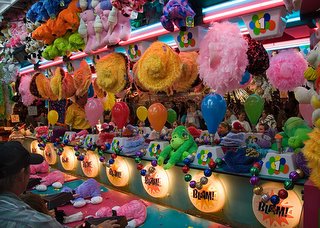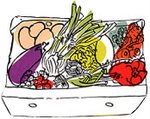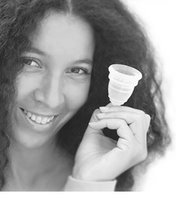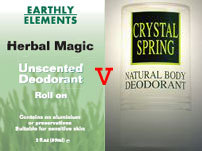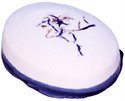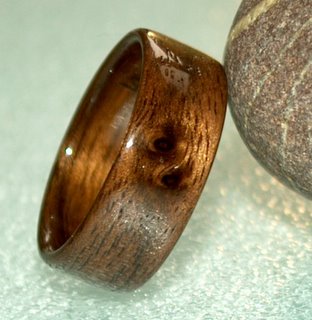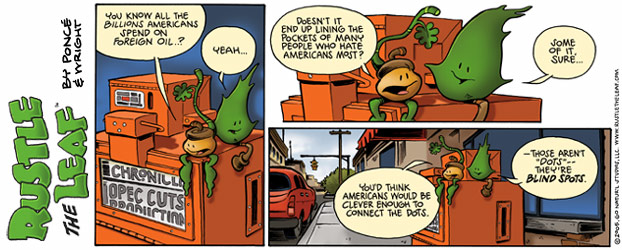
I feel so lucky to have had this interview with Craig...he seems like such a great guy really tuned into a similar reality to me.
In this installment, the fourth (
1 2 3 ) of our
Craig Sams interview series, we find out why
Green & Blacks only ever had one product certified as Fairtrade which is something a lot of people have emailed me to ask about.
WARNING: this is heavy stuff and reads a bit like a political thriller.
CityHippy: Following on from my question about Green & Blacks I have wondered why only one of the Green & Blacks products was ever Fairtrade certified?
Craig Sams: We have never changed the way we do business. We always pay fair prices, deal with democratic cooperatives, support our growers with long term contracts, give them cash up front if they need it to pay the cooperative members, help them on maintaining organic standards. So when Fairtrade asked us if we’d go for their symbol on Maya Gold, we said we would. We didn’t have to change a thing to get their symbol and it was their first product ever, so we helped put them on the map. We believe that the way we do business is the way everyone should do business and that all businesses will realise that it’s best in the long run.
Interesting. Did not know that Maya Gold was the first ever Fairtrade certified product? Cool. Wonder why G&B did not certify their other products then? Have emailed Craig and asked him about that.
This is what he replied. Unedited. Powerful stuff and gives a great insight into what the reality is in green business.
Craig Sams: The simple answer is that the FT Mark costs 2% of turnover if you are a standard organisation, although Traidcraft, Café Direct and Equal Exchange only pay 1% as they are perceived to be ‘giving something back.’ Over the past decade we’ve paid over £300,000 in FT fees, none of which has gone back to the Maya producers in Belize. We’ve secured a £250,000 DfID grant for them to build capacity and matched it with £250,000 of our own money but the FT sends its money to a central fund at FLO (Fair Trade Labelling Organisation) in Bonn where it is dispensed as FLO thinks best. When the cacao producers , who also grow oranges and whose cooperative squeeze and bottle frozen orange juice, asked if we could get Fairtrade status for their orange juice we were told that there was already a fair trade project that a German company was doing in Brazil and they didn’t want to flood the market with fair trade orange juice.
The Fairtrade Foundation also used to oppose the idea that one customer would take all the production of one supplier – our contract with the Maya, which predates the FT Mark, was very specific that we would buy everything they could produce and that in exchange they would sell us everything they produced. The Fairtrade Foundation went along with this because of the lack of other contenders at the time to purchase their cacao, but we wanted a secure relationship because we had committed ourselves, in our advertising and in naming the product Maya Gold, to sourcing our cacao from the Maya region of Belize.
All the above was several years ago and I think that things have changed and are changing but our view was that we had started doing things ethically years before we became the first company to take the Fairtrade Mark and that we and our suppliers would do best if we continued to do so. So, no, it’s not going to happen [I asked if other G&B products were going to go Fairtrade], there doesn’t seem to be a significant marketing need and there was a problem with the FT people that predated the arrival of Harriet Lamb, who is more flexible and understands the issues more clearly, but by then the die was cast.
[Mouth open!] WOW! Fairtrade reality is clearly much more complex than most of us consumers imagine. I have many questions but I have emailed Craig the following follow-up question:
When you say you pay FT 2% of turnover...is that meant to represent the extra money that goes to the growers or did the cacao farmers get more money directly from you?Will let you know what he replies as soon as I hear back from him.
I am starting to believe that product certification is nearing its natural shelf-life. Personally I am much more interested in the company itself as opposed to one product or another. No matter how much Fairtrade coffee Nestle offer me I will not buy it...Nestle's general business practices and history disturbs me. Know what I mean? It is not about the product actually...it is about the company behind the product. I want to support those companies that have a strong ethical core. I hope Nestle sells lots of Fairtrade coffee too existing customers though. Good luck to them. The more ethical they get the better.
Join us for part 5 when Craig tells us about his vision for the future.
Namaste
Al
Technorati tags:cityhippygreenorganicenvironmentethicalfoodenergyagriculturechocolatebusinesshealthfairtrade Have heard back from Craig. Check this out. Updated closing comments follow:
UPDATE from Craig - an answer to the above question:The FT require that a $200 ton premium over and above the Fairtrade price for cacao is paid to the farmers. So we pay $1925 – non organic cacao (grown with chemicals and the consequent risk of exposure) has a Fairtrade price of $1725. The world market price fluctuates, usually from $1100 to $1500. We pay higher prices anyway for organic cacao, but I’m not sure I agree that the organic grower should be penalised with a higher price hurdle; it encourages fair trade non-organic, which is a bit of a contradiction in terms.
The 2% is paid on our sales turnover, the growers get a separate premium. A 100g bar of Maya Gold chocolate contains 60g of raw cocoa bean ingredient, or .06 x $1.925 per kg or 12 cents. This represents a fair trade premium to the grower of about 3 cents. The 2% is paid on the cost of chocolate that has been shipped, processed, had sugar and spices added and wrapped and cartonned and shipped to the UK and had our profit margin added. So 2% on a bar that is sold for about $1.35 is about 3 cents. The value added tax is about 40 cents, by the way – no rebate for being fair trade, which shows the depth of the government’s support. So the Fairtrade Foundation make about 3 cents a bar for enabling the growers to make, separately, about 3 cents a bar. The Fairtrade Foundation use their 3 cents to promote the concept of fair trade and cover their administration and development activities. They do a good job and we’re happy to support them, but we are investing heavily in direct support to our growers, something that we cannot do through the medium of the Fairtrade Foundation.
This just keeps getting more and more interesting.
Clearly Green & Blacks are paying a Fairtrade price. Plus they are certified organic. Surely getting larger ethical producers on board, especially certified organic ones, makes good marketing sense for Fairtrade?
So why do Green & Blacks feel that they can do more good for growers outside of the Fairtrade system, so much more good that not being Fairtrade even outweighs the positive benefits Green & Blacks could gain from being Fairtrade? Isn't that a failure for Fairtrade? Something that needs to be fixed? Why are Fairtrade not busy getting Green & Blacks on board whatever it takes?
Surely the FT system needs to encompass those being ethical WHILST encouraging others to be ethical? Or is that naive? Is it just about getting companies to be ethical? But then doesn't that add to the confusion for the ethical consumer?
As a typical lazy consumer trying to be ethical I just want to know what is and isn't ethical in a shop. I have assumed in the past that no Fairtrade cetificate means the product is not ethical. Clearly that assumption is wrong.
How can that be good for Fairtrade?
 This episode: From Pole to Pole
This episode: From Pole to Pole

